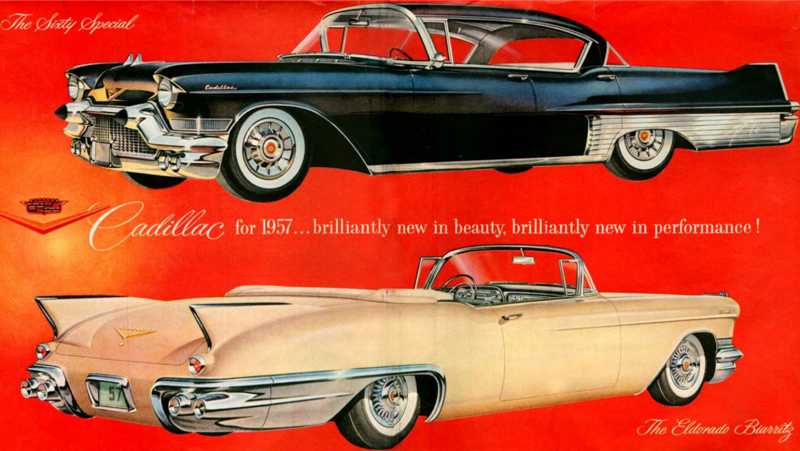Great news for all researchers and teachers working on topics of twentieth-century consumer culture, advertising, or market research as they relate to the US. Together with the KfL, the FID AAC licensed two databases provided by Adam Matthew Digital for you: J. Walter Thompson: Advertising America and Market Research & American Business, 1935–1965. Since we successfully negotiated a national license for Germany, you will be able to reach the materials from your university’s network or via the database information system (DBIS) provided by your library. Independent scholars or scholarly-minded people without an affiliation can register for access to nation-wide licenses with the DFG (German Research Council) when they permanently reside in Germany. You can access both databases via the American Consumer Culture platform. Find more information concerning registration and getting access on the FID AAC licenses page at the KfL.
Covering a time when Madison Avenue was the epicenter of US marketing and advertising and so-called Mad Men were looked up to, these databases offer a wide variety of materials to not only study the history of American consumerism. Concentrating on two of the most influential individuals and their advertising firms in US history, these databases offer invaluable insights into the inner workings of these companies as well as their impact on US culture as a whole. Thus, the materials support a wide variety of projects from researching the mechanisms of advertising, to visual culture across different media, to the cultural image of certain objects (cars, cigarettes, etc.), services (airlines, travel agencies), or brands (Kodak, Barbie, Ford).
Market Research & American Business, 1935–1965
This database is a great resource to study American consumer culture of the mid-twentieth century through the lens of Ernest Dichter’s agency The Institute for Motivational Research, Inc. that was responsible for ad-campaigns for, among others, Kraft Foods, Heinz, or Disney. The collection offers an excellent stock of documents that attest to the immense influence of Freudian approaches in post-war American advertisement.
You can browse the document collections according to
- document type (letter, memorandum, pilot study, etc)
- industry (food, beauty, politics, electronics, etc.)
- language (English, German, Spanish, French, etc.)
Besides documents, the database also offers useful visual materials that contribute to a deeper study of questions surrounding advertisement in the US. The Ad Gallery includes newspaper and magazine ads as well as posters that can be filtered according to decade, brand, and industry.
Immensely helpful in using this database is the fact that each item was categorized according to an industry. The Industries-page not only directs users to related materials but also contextualizes each industry within the greater framework of Dichter’s understanding of his work. This is especially fruitful in areas ‘outside’ commerce such as Politics, Public Service, or Education.
J. Walter Thompson: Advertising America
This database presents vast materials from the inner workings of one of the most renowned and influential advertisement agencies of the twentieth century: J. Walter Thompson (JWT). From the perspective of consumer culture, these documents and ad-campaigns offer great potential to study, among others, questions related to history, cultural studies, economics, or gender studies in the US.
Smartly, the materials have been grouped together in collections and series according to their respective context and given introductory texts to historicize and explain the nature of these sources. In this way users can use series such as Staff Meeting Minutes, Account Files/Brand Case Studies, or Chicago Office Media Resources and Research Department Records in an informed way. The visual sources differentiated between Print Advertisements and JWT Photographs are both searchable by date, brand, subject and type.
Besides the excellent primary sources, this database also offers access to rich supplementary materials in the Explore section. Here, users can find academic essays on the impact of JWT, video interviews with experts in the field, client case studies, and chronologies of the company’s history (both from the company’s perspective and an archive’s perspective).
The databases on American Consumer Culture, so far, has sourced materials from the following institutions:
- Hagley Museum and Library, which specializes in the study of business and technology in the US and holds majority of Dichter’s US-related market studies and reports.
- The John W. Hartman Center for Sales, Advertising & Marketing History, Duke University, which holds the J. Walter Thompson Archives.
- The Advertising Archives.
Enjoy exploring! If you would like to make a request for future databases, fill out this form and let us know.
Additional materials on related topics (books, journal articles, DVDs, Blu-rays) can be provided by the FID via inter-library loan.




